My name is Gurleen, and I am back with another article in my Healthy, happy… series. If you missed the first article, make sure to give Healthy, happy…with psychosis a read. As a recap, this YouAlberta series is a new project I am undertaking as part of the National Standard for Mental Health and Well-Being on our campuses to bring stories of students living with mental illness (and much more) to life. I am hoping to normalize talking about mental illness and mental health so that students are more open to understanding that mental illness, just like any other physical illness, can be a natural part of life for some people. Through open-mindedness and empathy, we can reduce barriers for those needing help during crucial times and build a supportive community for everyone.
What is Welltrack Boost?
Welltrack Boost is a self-guided mental health and wellness app. It is available for free to all U of A students! The app is web-based, but there is a companion app that can be downloaded on your phone to track moods and boost mindfulness alongside the web app. The app is accessible via @ualberta.ca email and a secure password. Additionally, The platform is completely confidential and anonymous. I've used this app for one month and now I have the results to share with you all.
What are my favourite features of Welltrack Boost?
Welltrack has many features that I found helpful and productive for the one month I used the app. Here is a list of my favourite features available on Welltrack:
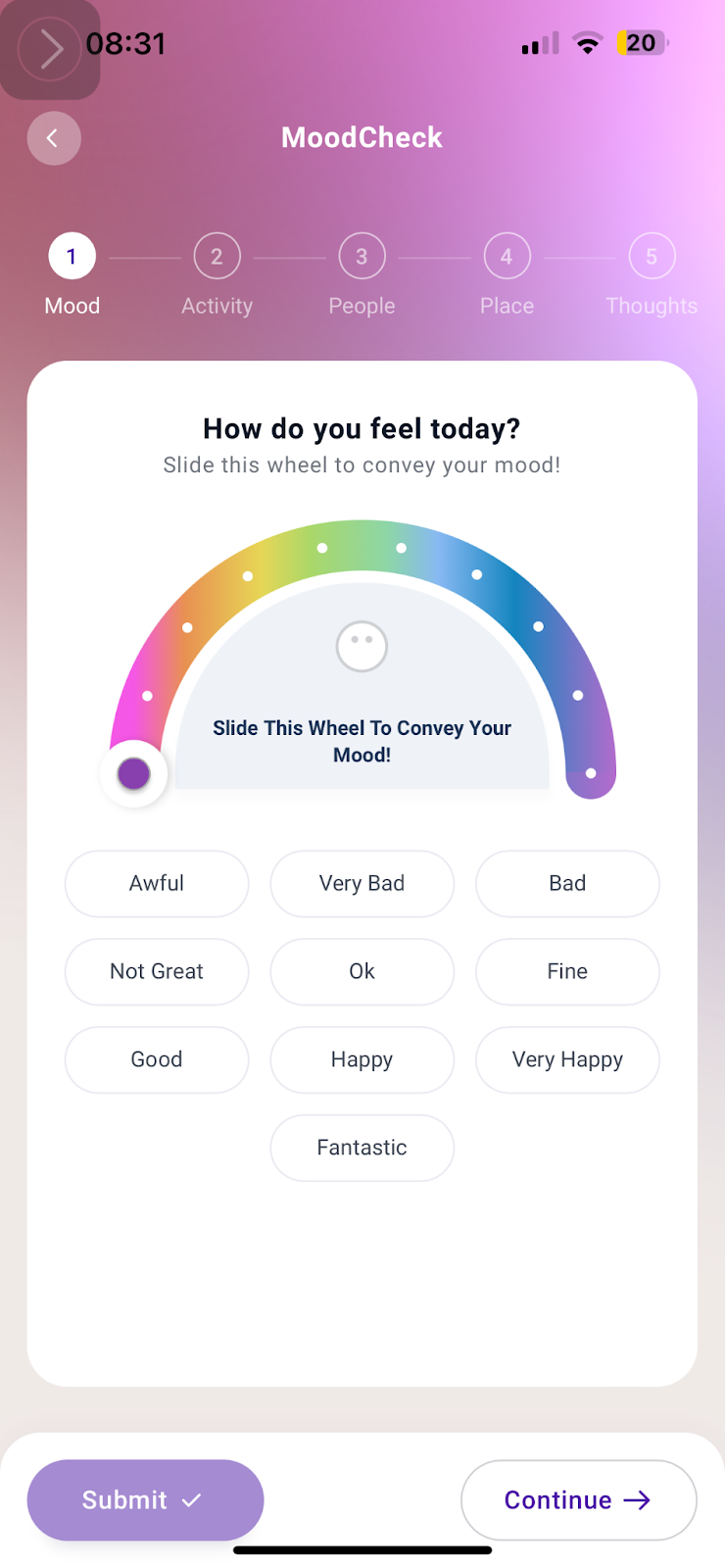
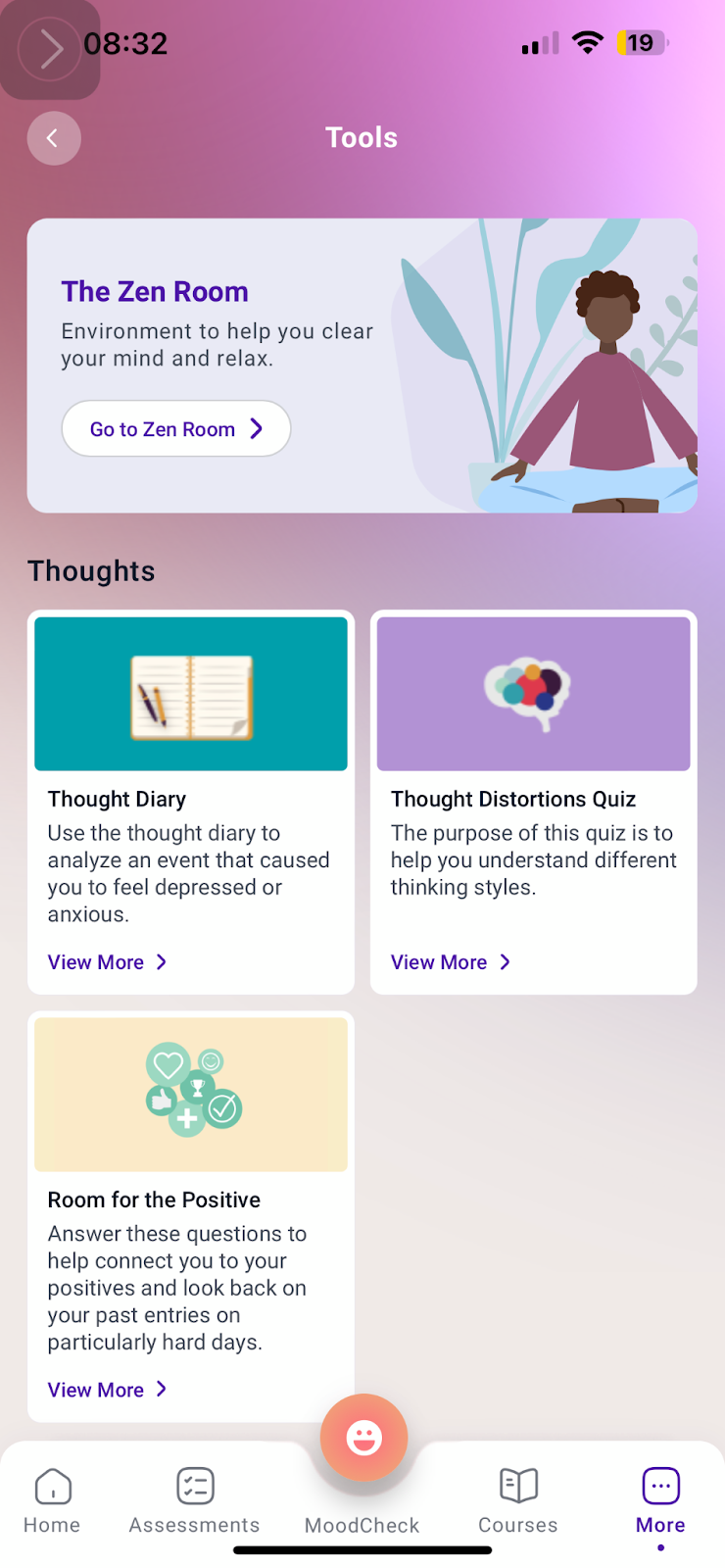
Moodchecks and Zen Room - Welltrack Boost provides a wide range of options to select related to how you are doing throughout the day via icons that correspond to your mood (aka Moodchecks). It doesn't end there; Moodchecks are associated with the activities you have been doing, people you are around and places you are at, along with thoughts associated with the mood. This is helpful when you are reviewing patterns in your mood and behaviour. If a Moodcheck doesn't do it for you, you can find something relaxing in the virtual Zen room, which is a relaxation tool available on Welltrack Boost to provide a comforting place with soothing sounds and a mindfulness-oriented time for self-reflection. 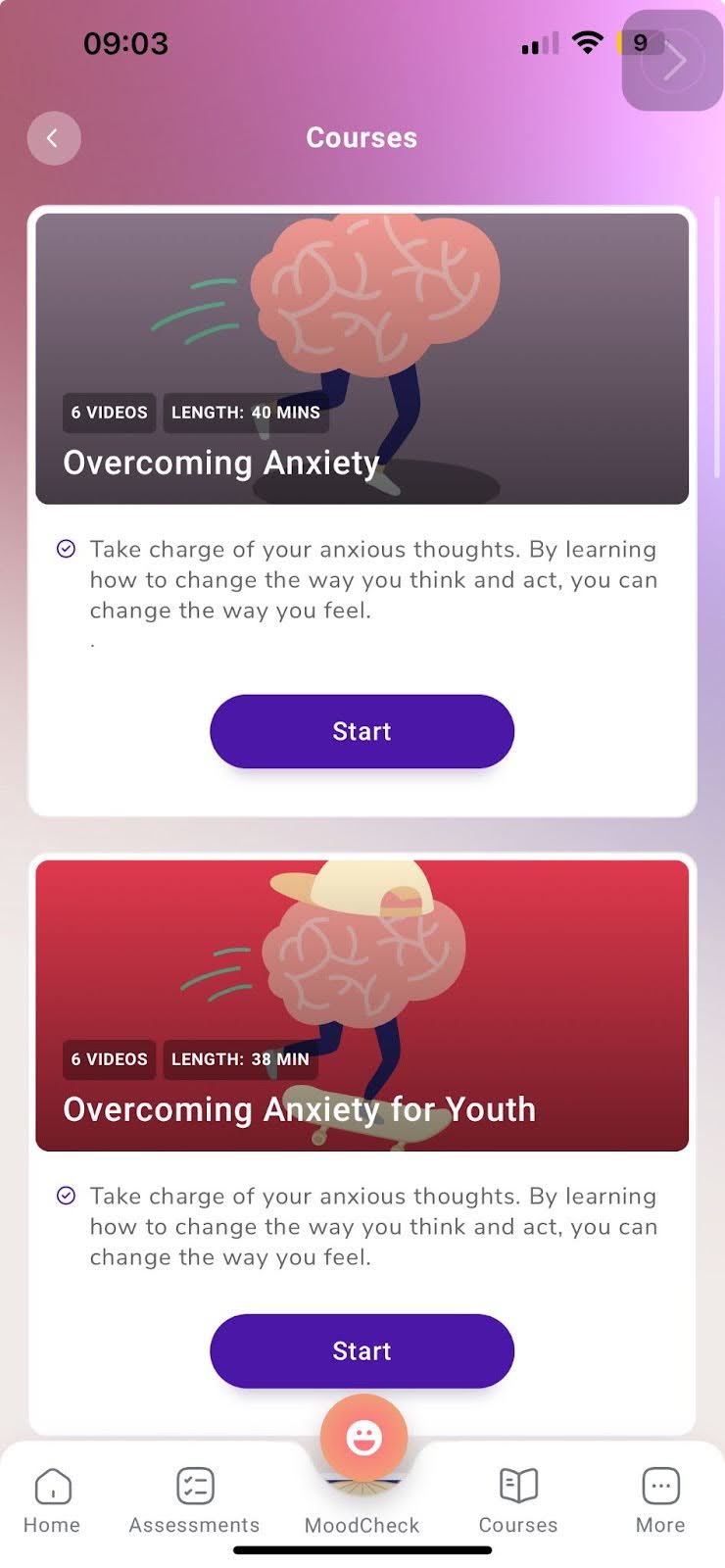
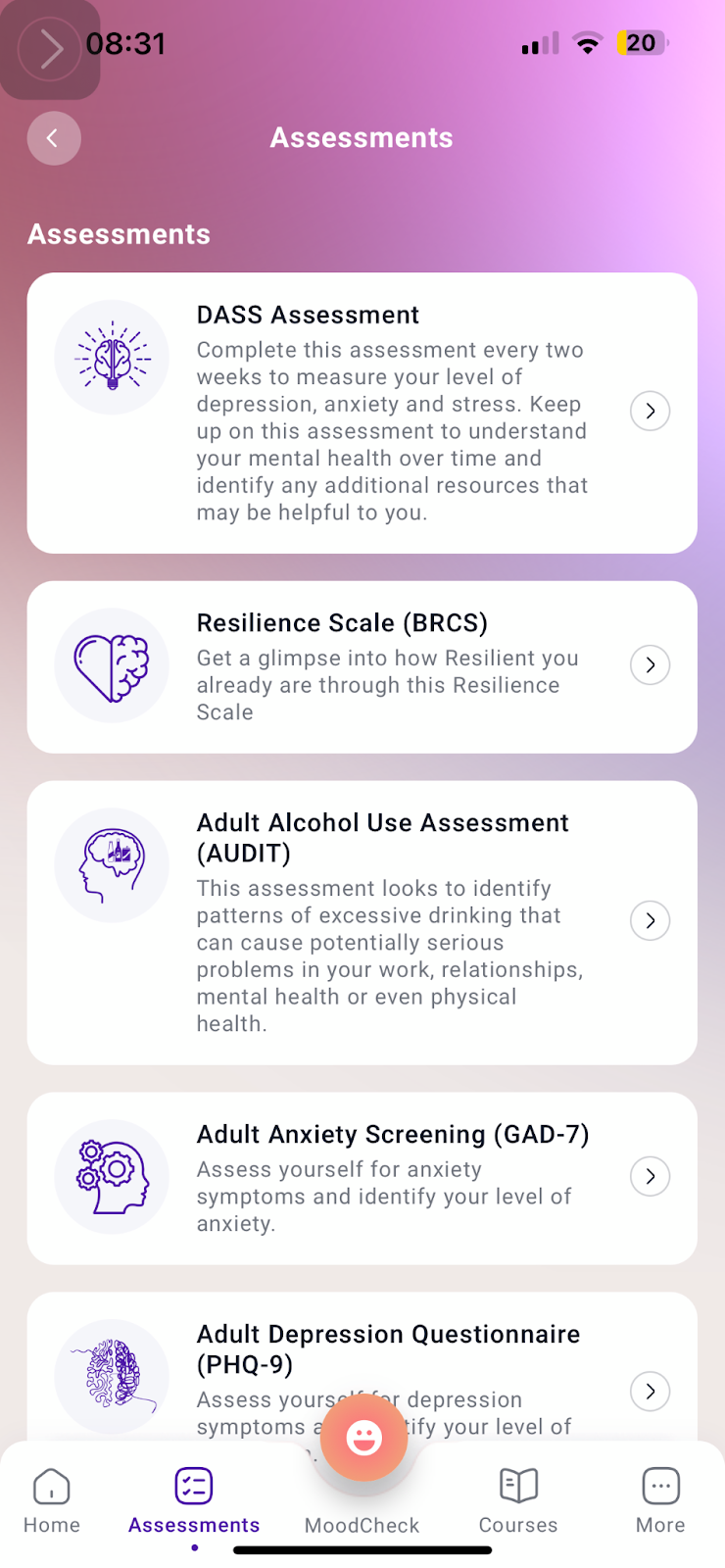
Courses and assessments - Welltrack has courses ranging from improving sleep to overcoming anxiety! I found these fun and a great opportunity to rethink my thoughts when I wasn't doing well. Additionally, there are various assessments available to gauge your mood and resilience etc.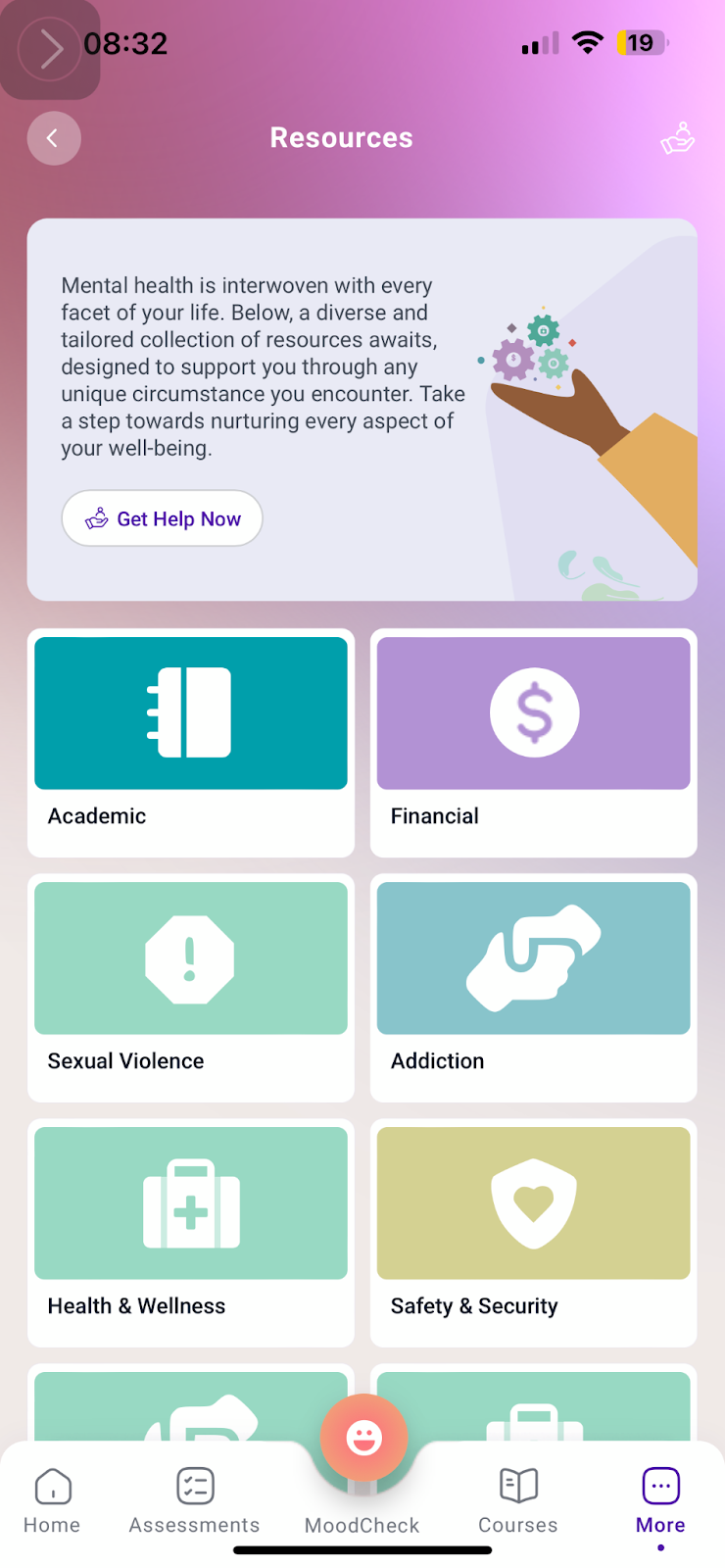
Resources - Welltrack asks for your preferences for any resources you might be looking for and gives you a list of recommendations. These are resources from the U of A and the community.
What did I find most interesting and helpful about Welltrack Boost?
Weltrack Boost can help review patterns in your behaviours.
I would highly recommend rating your mood at least twice per day at two different times. This can be especially helpful when you start reviewing your mood at the end of the week, as you are able to pick out patterns in your mood.
For example, I made sure to rate my mood once in the morning (sometimes in the afternoon) and once in the evening. I noticed that my mood was a lot worse in the evenings when I tend to be sad for various reasons, including the times I was commuting in the rough, cold weather.
This tracking of mood multiple times a day allowed me to notice my mood changes, and I was able to use that to my advantage as I implemented a strategy to send positive texts to friends as a way to counteract the negativity that was coming my way in the evenings.
Welltrack can provide a source of "grounding" when struggling if you review the past entries.
Here is an example from one of my "I'm proud of…" entries. Note: the title is a reference to the movie La La Land, a quote that Ryan Gosling uses at a time of struggle:
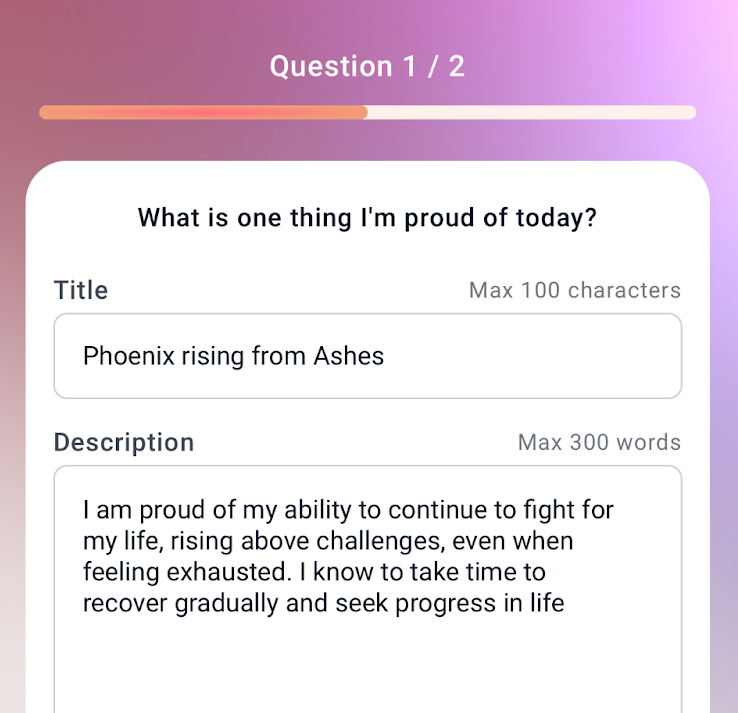
Welltrack Boost is extremely helpful and effective when it becomes a habit.
What to be aware of?
- You need to use Welltrack Boost with INTENTION.
- If you are mindful of how you are planning to use Welltrack, then it will be most useful and productive to you. For example, setting specific times of day to write in it or setting time aside during the week to evaluate your mental health overall.
- Welltrack Boost is not intended to replace treatment and/or other forms of support. It is a preventative tool that can help students maintain their mental health. I would not recommend relying on this app alone if you are dealing with severe mental health challenges. Welltrack can definitely be a wonderful add-on to your life but always remember to reach out for support to friends, family or professionals if you are struggling.
- Depression, Anxiety and Stress Scale (DASS) is an assessment available on Welltrack Boost that pops up every couple of weeks to assess how your anxiety, depression and stress levels are doing.
Do not self-diagnose yourself using this assessment, please — it is only helpful to assess the improvements and decline in your mental health. That being said, if you are concerned about your health, check with a professional.
- The good thing about DASS assessment is that it will recommend resources based on your preferences (depending on your campus selection — North Campus, Campus Saint-Jean, Augustana Campus) after you have completed the assessment so you know where to proceed for support.
If you are interested in being featured in our next article of this Healthy, happy… series for YouAlberta, reach out to natstand@ualberta.ca
What is the National Standard for Mental Health and Well-being?
The National Standard for Mental Health and Well-being of Post-Secondary Students is a Canada and university-wide initiative aiming to improve student well-being on campus and trying to make mental health a priority. It focuses on all areas of mental health, such as crisis intervention, mental health supports, accessibility and much more. Through various engagement activities with all campuses, the National Standard team has collected feedback on how students want their mental health and services to be improved. The What we heard report and Action Plan are in the works and will be released soon.







